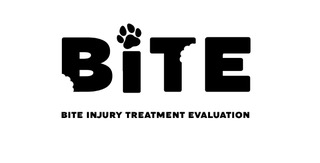BITE
Bite Injury Treatment Evaluation
Mammalian bites have been shown to account for 1% of all emergency department visits in the UK. There is clinical uncertainty regarding the optimal wound management for mammalian bites and wide variation in current management.
Debate has surrounded initial irrigation or cleansing of wound, prophylactic antibiotics, debridement, as well as whether treatment in A&E is sufficient or whether specialist surgical referral is required with surgical intervention.
A systematic review already performed for non-hand mammalian bites identified two observational studies and showed that there was no clear evidence to define best practice. They gave conflicting evidence for debridement but suggested that irrigation reduced risk of infection.
BITE is aiming to evaluate the current provision and normal practice for management of mammalian bite wounds between A&E and plastic surgery. Initially, we are carrying out a smaller 7 day pilot study, before aiming to recruit further centres to carry out a 1 month data collection period.
Summary
The aim will be to liaise with our A&E colleagues to collect 1 month data prospectively of patients referred to plastic surgery, then retrospectively collect data for the same month of patients who have been seen in A&E with both hand and non-hand mammalian bites (including human bites).
How can I get involved?
We hope this service evaluation will help support our application for funding for a RCT to try and ascertain the optimal management for mammalian bites.
We currently have collaborating centres in Oxford, Stoke Mandeville, Wexham Park, Charing Cross, St. Mary’s, St George’s and Chelmsford.
Want to be involved at your plastic surgery centre? Email us at bite.trial@gmail.com to register your interest.

